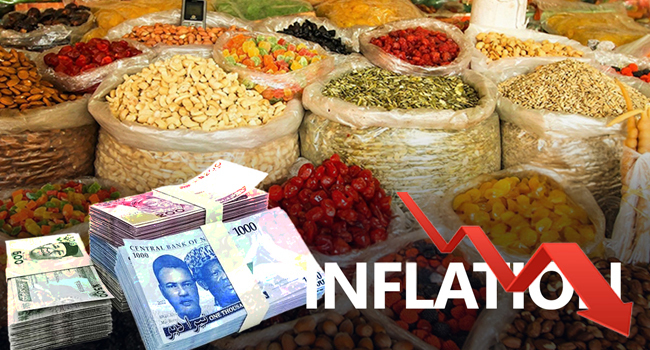Nigeria’s inflation rate has decreased to 16.05 percent in October 2025, down from 18.02 percent in September, according to the National Bureau of Statistics. This marks the seventh consecutive month of declining inflation since April 2025. The Consumer Price Index report reveals a 1.96 percent decrease in the headline inflation rate.
On a year-on-year basis, the inflation rate is 17.82 percent lower than the rate recorded in October 2024, which was 33.88 percent. However, on a month-on-month basis, the headline inflation rate increased by 0.21 percent to 0.9 percent in October 2025, compared to 0.72 percent in September.
The food inflation rate decreased to 13.12 percent on a year-on-year basis, representing a 26.04 percent point decline from the 39.16 percent recorded in October 2024. The decline is attributed to the change in the base year. Nevertheless, the food inflation rate increased by 1.21 percent on a month-on-month basis, driven by price increases in onions, fruits, and meats.
The urban inflation rate stood at 15.65 percent in October 2025, down from 36.38 percent in October 2024. The rural inflation rate was 15.86 percent, a decrease from 31.59 percent in October 2024. The twelve-month average inflation rates for urban and rural areas were 22.68 percent and 20.81 percent, respectively.
The decline in inflation rates is a positive development for Nigeria’s economy. The country has been experiencing high inflation rates in recent years, driven by factors such as currency fluctuations and supply chain disruptions. The National Bureau of Statistics’ data suggests that the inflation rate is trending downward, which could have implications for monetary policy and economic growth.
The decrease in food inflation is particularly significant, as food prices have a significant impact on consumer spending and overall inflation. The increase in food prices on a month-on-month basis, however, highlights the need for continued monitoring of price trends to ensure that inflation remains under control.
As Nigeria’s economy continues to navigate the challenges of inflation, the National Bureau of Statistics’ data provides valuable insights into the trends and patterns shaping the country’s economic landscape. The decline in inflation rates is a welcome development, and policymakers will likely be watching closely to see if this trend continues in the coming months.
